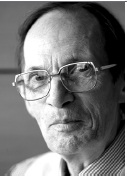by Henry Scott Stokes
I have been reading the book reviews from England. Ian Buruma, someone I meet occasionally, is being hailed for his latest work—a study of modern Japan. Alex Kerr, also a writer on Japan, is again being mentioned in recent weeks for his work Dogs and Demons. I wish I was half as diligent as these two.
Alas!
I have always been lazy, and sometimes I got called on this. Years ago I was sent to the British Embassy by an ambassador who had got fed up with my reports to The Times. When I arrived at the embassy, I was ushered into his presence and found him seated there, like God, with his senior staff. He was all ready to preach to me.
“You don’t know the first thing about this country,” he started off by saying.
I didn’t agree with that. I spent all of my time and energy in nocturnal pursuits—imagining myself as Prince Genji. I was getting to know a Japan that Her Majesty’s Envoy and Plenipotentiary would never experience. But I couldn’t say that, could I? I bowed my head in shame.
“Honestly, you are dressing me down as did my headmaster at my prep school,” I finally burst out.
The ambassador—a small, plump man—jumped in the air, as if I had kicked him. He seemed astonished. Apparently, he had not expected me to answer back.
Mind you, he was perfectly right. I did not know the language. I had only the faintest feel for Japanese culture and history. Yet my protest struck a chord. The ambassador—Sir John Pilcher—became my Virgil in a way. He gave me introductions and he propelled me, step by step, into society in Tokyo and in Manila, where he had also served.
The biggest favor he did me was to introduce a Buddhist priest called Kobori Naurei—I write the name in the Japanese style, with the surname first.
John opened that door at a critical time in my life. A friend—the Japanese person I liked best—had committed suicide. This man had torn open his gut with a sword in the rite known as seppuku. If you know Japanese history you will know who I refer to. Yes, Mishima Yukio, the most famous Japanese of his era. He killed himself on Nov. 25, 1970, in Tokyo, using a right-wing nationalist scenario.
That event threw me into a heap. As a foreign correspondent, I had tracked Mishima for several years. He wrote to me twice, in that time, to say that he was considering suicide. I stupidly turned a blind eye to those letters saying that he considered himself a failure as a writer, and that suicide was “the only solution.”
Worse still, my reports to The Times—or so he said—encouraged him to take himself even more seriously as a political activist. What nonsense. He was a novelist and a playwright. He should have stayed 10,000 miles away from politics. I might have told him that. Instead, I had shrugged my shoulders.
Pilcher, that good man, saw that I was in a hole. He had the inspiration to send me down to Kyoto, to meet the priest I mentioned, the Rev. Kobori, abbot of Daitokuji—a celebrated man. He was a descendant of Kobori Enshu, famous for his 17th century gardens, notably at the Katsura Rikyu. He was a man of many parts, as were his ancestors.
When I got to Daitokuji, I was ushered into a tatami room.
My host entered, sat down and served me a bowl of bright green tea. He listened to my tale. “I wish Mishima had come to see me,” he said. “I would have urged him not to hurry so.”
That was all he said.
I left the temple that day, feeling refreshed and renewed. I felt as if I had stood under a mountain waterfall and let an icy spring flood over my shoulders. Months of tension gave way to a feeling of tranquility. I had sinned. I had behaved monstrously. Very well, then, that was my responsibility.
May you be as fortunate in your Japanese encounters. In the meantime, if you are looking for an insightful book, turn to Mishima’s Confessions of a Mask. He wrote it when he was 23. It tells you what it feels like to be Japanese, someone said. I agree with that. Yukio excelled himself with that autobiographical work. The last page or two are extraordinary. The whole of post-1945 Japan is laid open for inspection. What a shame he is not around. I miss him.









